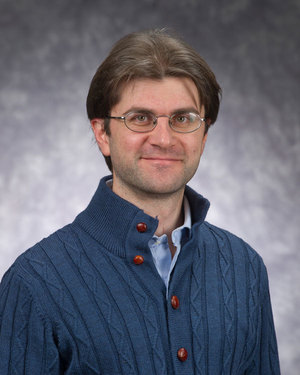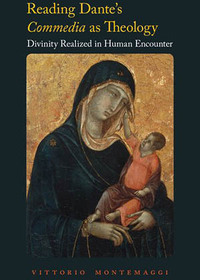
- King's College London; University of Notre Dame
- Lecturer in Religion and the Arts; Associate Professor
- Affiliation During NDIAS Fellowship: University of Notre Dame
- Residential Fellow (2012-2013)
- “Truth, Language, Love: The Theology of Dante's Commedia”
Vittorio Montemaggi is Lecturer in Religion at King's College London. His interests include the relationship between literary and theological reflection, the relationship between language, truth and love, and the interconnections between the question of the relationship between theism and atheism and that of the relationship between tragedy and comedy. His research to date has focused primarily on the works of Dante and Primo Levi, while his comparative interests also entail exploration of the works Augustine, Gregory the Great, Aquinas, Shakespeare, Dostoevsky and Roberto Benigni.
Professor Montemaggi is co-editor of Dante's Commedia: Theology as Poetry (2010), and the author of ten essays on Dante's Commedia and on the relationship between Dante's Commedia and the works of Primo Levi and Roberto Benigni. He is also the former recipient of a Junior Research Fellowship at Churchill College, Cambridge. Currently a member of the advisory board of Leeds Studies in Dante and a member of the Council of the Dante Society of America, Professor Montemaggi is also currently a Senior Member of Robinson College at Cambridge University and a Faculty Fellow of the Nanovic Institute for European Studies.
Publications
-
Reading Dante's Commedia as Theology: Divinity Realized in Human Encounter
Oxford University Press, 2016

Dante’s Commedia compels readers to confront the mystery of their existence, to seek understanding of their relationship to the living conscious reality from which all possible experience arises. By pursuing these lines of inquiry, says Vittorio Montemaggi, readers can reach an ultimate reality that Dante calls love.
Montemaggi offers a detailed theological reading of the Commedia, examining the theme of human interaction, both as it is represented in the poem-the narrator Dante’s interaction with other characters-and by the relationship between author and reader. In doing so, he locates a Dante we may not be used to imagining, a man aware both of the spiritual power of his work, and of his profound, essential vulnerability and moral failing. Montemaggi shows that, for this Dante, truth emerges only through human limitation and failure, and not in spite of it.
Applying this interpretive framework to a reflection on the methodology of scholarship itself, Montemaggi offers a vision of what the academy could be-not individual scholars in competition with others, but a community that seeks to foster the understanding that can arise through interaction, vulnerability, and love. His vision constitutes a benign challenge to some of the ethos and practices of the modern academy, while simultaneously reflecting on the dynamics of one of the most inspiring and influential texts ever written about the relationship between humanity and divinity.